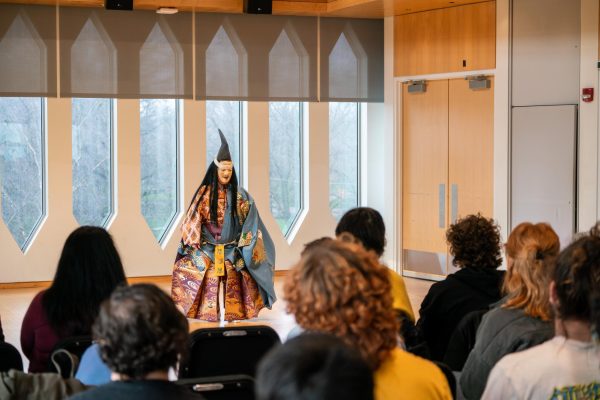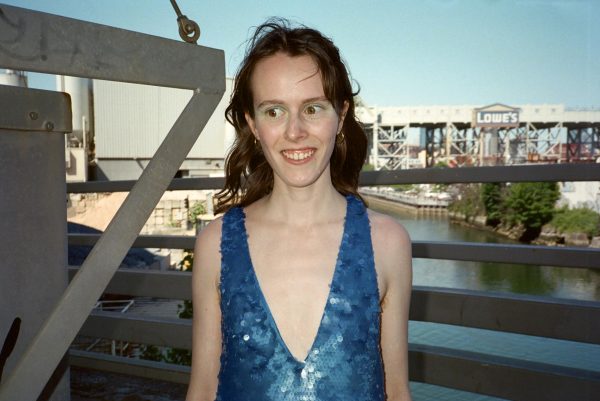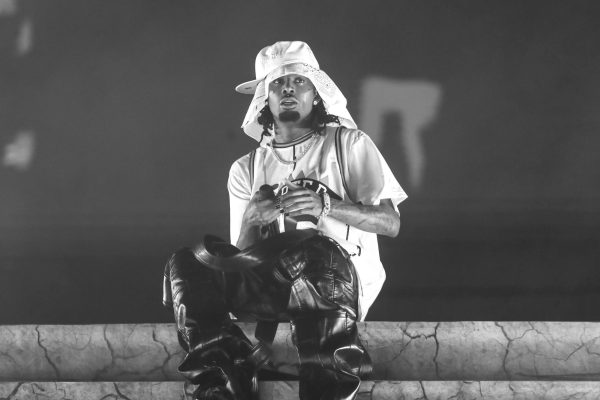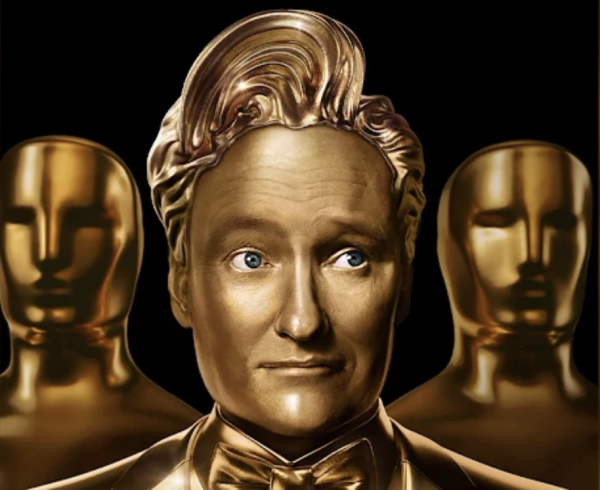“Keep It Gay” Evokes LGBTQ+ Pride with Queer Music
Oberlin was dazzled by its newest Oberlin Musical Theater Association musical showcase, Keep It Gay, which ran last Thursday through Saturday under the direction of College junior Julia Peterson.
The showcase featured a collection of musical songs that had been “queered” or were queer and both tore at heartstrings and invoked laughter. Peterson, along with assistant director and College first-year Mia Fox and co-music directors College sophomore Paul Lawrence and College junior Alex Ngo, organized the showcase as a celebration of queer identity, delivering an important reminder of the values that hold the Oberlin community together. As the cast pointedly sang in I Am What I Am, “It’s my song, and if you don’t like the style I bring it / My song, so at least respect my right to sing it.”
“I wanted to share my enjoyment of exploring and living my queer identity through musical theater with others,” Peterson wrote in her director’s note.
With one of the highest ranked undergraduate conservatories in the world, Oberlin regularly draws upon a level of talent that borders on professional. Keep It Gay went above and beyond expectations with performers who perfectly fit with their songs.
Even though the performers ranged across all different levels of experience, there was no single star that ruled the stage. Everyone had a unique place, and the brilliant casting that led to this arrangement was perhaps one of the showcase’s greatest strengths.
Arguably even more important was the teamwork that the performers brought to the showcase. Every individual in Keep It Gay was good on their own, but together, they complemented each other in both vocals and choreography to create a greater performance than any of them would have been able to achieve alone. Although there were times when the background music overpowered a performer’s singing, it was this teamwork that allowed the showcase to continue to shine. These collaborative dynamics were clear from the show’s opening number, a queer version of “S’wonderful” from An American in Paris, which showcased stellar harmonies from College junior Chloe Falkenheim and College first-years Icey Belair and Annika Bell as they sang this amusing number about being in love, not realizing that they are all in love with the same woman.
The show’s vocals were undoubtedly its best performance feature. While the choreography was certainly good, there were points at which it came across as flat or even forced. Nevertheless, it still added a dimension to the wide range of songs that included reinventions of old classics such as Les Miserables’ “A Heart Full of Love,” performed by Peterson, Belair, and Falkenheim, as well as contemporary Oberlin favorites, such as Fun Home’s “Changing My Major,” performed to great audience delight by College first-year Sofie Rejto.
The range in experiences meant that the showcase did not adhere to any particular tone. Each act lent a glimpse into a completely different world, whether the whimsical magic of Into the Woods, performed by Falkenheim and Bell, or the heart-wrenching sorrow of Bare, performed by College seniors Drew Styles and Alexy Jabbour. The show did not seem as though it was meant to move in any single direction, but instead to provide a brief taste of queerness in musical theatre — the state that it exists in today, as well as a vision of what it could someday be.
It is worth noting that while some of the songs, such as “An Old-Fashioned Love Story,” performed with great power and comedic timing by Fox, and Jabbour’s tender ballad “What More Can I Say?” were originally queer, one of the most clever aspects of the showcase was its tendency to add queerness to different musicals, taking songs and stories that were written for straight characters and applying these narratives to a queer context instead.
One of the best examples of this can be seen in “In [Her] Eyes” from Jekyll & Hyde, performed by Fox and Bell. In the original production, the song, as “In His Eyes,” is performed by two women who share the stage to sing about a man without interacting with each other. Keep It Gay subverts that trope, as the performers visually recognize each other in an electric moment, then begin singing about each other directly, entirely altering the song’s narrative with only a few subtle changes to pronouns and blocking.
Another love song, “What You Mean To Me” from Finding Neverland, performed with romantic, ethereal grace by Rejto and College senior Kira Scala, changes nothing about the song except how it is cast, an entirely different but no less wonderful way of creating a queer narrative in musical theater.
Ultimately, the true power behind this showcase came from the simple fact that the performers were not just performing well-worn, oft-told narratives. Whether they were highlighting lesser-known queer love songs or creating queer narratives out of originally-straight stories, the performers brought real emotion to every act. Moreover, they made the audience feel as though we were a part of the show, because this was a celebration of our identities as well. Keep It Gay presented a reflection of our multifaceted queer lives and queer identities, reflecting theater’s long tradition of representing queerness on stage and offering up a glimpse as to where that legacy can lead. In the end, we are simply who we are, and Keep It Gay made it clear that whether we are accepted or not, we can never be denied.









